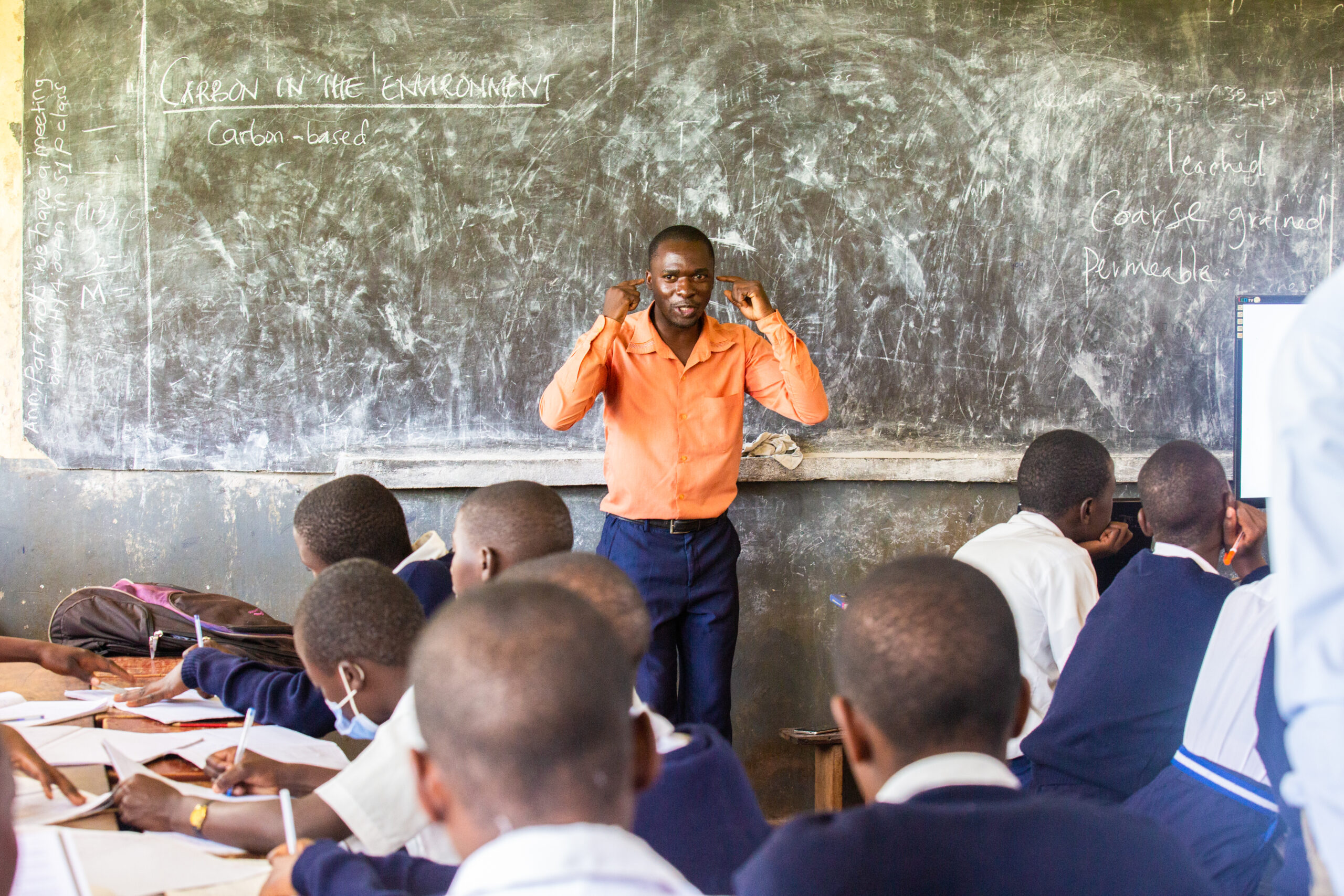
We want to create a world where children love learning. This requires motivated teachers, nurtured through carefully designed professional development. But teachers do not work in a vacuum. Teacher motivation needs a conducive environment. So school and district leaders need to role-model motivation too. And for this to work across a whole education system, national governments need to focus on harnessing motivation in alignment with their local priorities.
We therefore need to measure our impact at every level of the education system. But measuring motivation is hard. We believe that changes in behaviour over time most clearly show our progress. We track these behavioural measures over time. All our processes need to be simple, affordable and scalable. We also conduct frequent research studies to validate and deepen our learning. And we work with governments to embed our measures into their own monitoring frameworks.
Children
Children
Teachers
WHAT ARE WE TRYING TO ACHIEVE?
- Children have highly positive attitudes to learning.
- They display successful learning behaviours.
- They attend school and feel safe.
- They engage in classroom activities and show curiosity in class.
- They develop academic and social emotional skills to thrive both within school and beyond it.
THE EVIDENCE
- A four percentage point (pp) increase in student numeracy levels (Delhi RCT, 2018).
- A 2pp increase in grade 4 and 5 reading scores (Uttar Pradesh study, ASER, 2015-17).
- A 14% increase in children asking questions in classrooms in Delhi.
- A 55% increase in children’s self-esteem in Karnataka.
- In a survey of 8,000 teachers in India, they believe participation in our programmes resulted in:
- 94% reported safer classrooms and happier students.
- 88% reported improved student reading levels.
- 86% reported improved student numeracy levels.
Teachers
WHAT ARE WE TRYING TO ACHIEVE?
- Teachers feel motivated and confident in their teaching practices.
- They adopt innovative and effective teaching strategies.
- They create safe and engaging learning environments.
- They actively participate in professional learning communities.
- They foster positive relationships with students and peers.
THE EVIDENCE
- 590,000+ teachers reached globally
- Indonesia: Over 18,600 teachers
- Uganda: Over 92,800 teachers
- India: Over 480,000 teachers
- Impact on Teaching Practices:
- 94% of teachers reported safer classrooms and happier students.
- 88% of teachers observed improved student reading levels.
- 86% of teachers observed improved student numeracy levels.
- Teachers participating in the STiR programme demonstrate increased motivation, greater collaboration with peers, and a stronger commitment to improving learning outcomes.
- The improvements in teaching practices are consistent with long-term behaviour change, indicating sustainable impact at scale.

